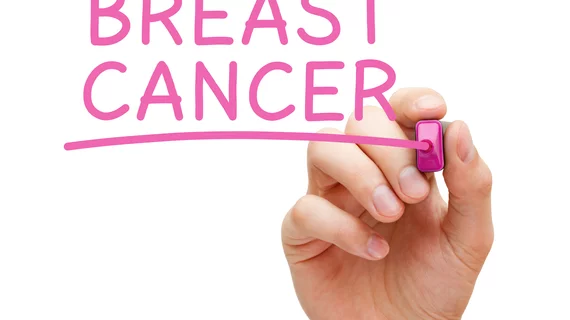Program aims to bolster know-how of breast treatment workforce
U.K. radiologists hope an innovative new pilot program will help train more clinicians to become breast treatment experts, thereby relieving staffing shortages in the specialty.
The Royal College of Radiologists (RCR) and Association of Breast Clinicians announced the launch of the new three-year accreditation program on Thursday, Oct. 3. The groups plan to provide standardized, national training for physicians who want to become more “holistic breast clinicians.” Curriculum will cover the gamut, including imaging, examination, disease management and the genetic risk factors that fuel breast cancer.
“The development of this credential, providing a standardized training pathway for breast clinicians will, over the next few years, have a very significant impact on the breast imaging workforce,” Mary Wilson, MD, a radiologist and program lead for the National Breast Imaging Academy (NBIA), said in a prepared statement. The NBIA and Health Education England are both providing funding and resources for the program.
Experts said the effort is crucial in the U.K., where an increasing number of patients are being referred to breast care specialists and there are serious shortages of specialized radiologists. Seven hospitals are now piloting the credentialing program, and organizers hope to eventually make it available throughout the area.
The RCR hosted a kickoff event in September to welcome the program’s first seven recruits. You can visit the RCR’s website for more information about the disease management credential and the training program’s full curriculum.

